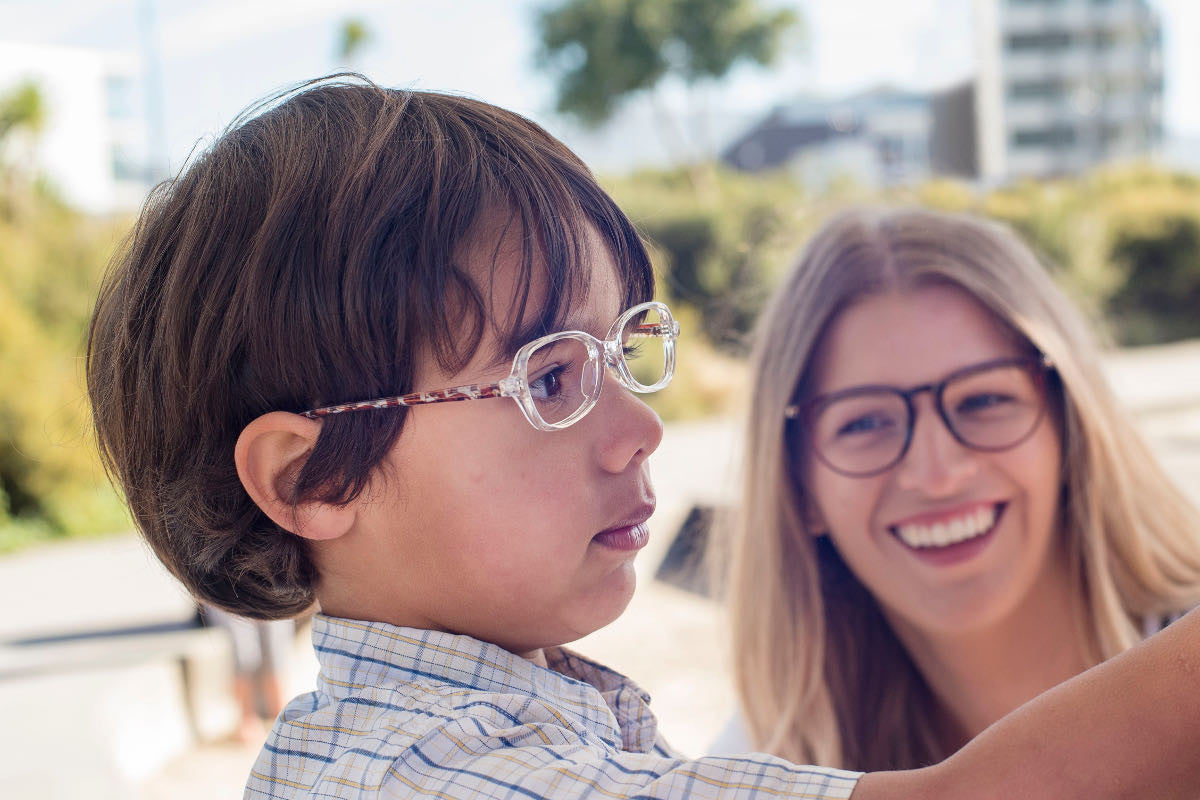Mr Foureyes runs a Buy One, Give One programme. That means for every pair of glasses we sell, we also donate a pair. The donated pairs go to New Zealand school children, who may be having difficulties at school because of undiagnosed eyesight problems.
How does it work?
We work with schools to help get the glasses to the kids who need them. It’s important to us that this work complements the systems and support that are already in place, including the Government subsidy scheme (for community services card holders), and school screening programmes.
Why is it needed?
We think there’s a need for more work in this area because Ravi has seen first-hand that the existing systems don’t pick up everyone who needs help. In his work as an optometrist he has come across kids struggling with their reading, who benefited enormously from some weak reading glasses, right through to men and women in their late teens and early twenties who had made it through their whole school lives thinking they are just no good at school-work or are too dumb to learn, when all they may have needed is some glasses.
We particularly want to work with kids in remedial learning classes – we think poor eyesight should be ruled out as a factor for any child who needs additional help.
The existing government subsidies are great, but we still see a need for free glasses. For example, children’s eyesight can change so rapidly that they may outgrow their glasses (or the glasses get lost or broken) before they are eligible for another subsidy. There are also people who aren’t eligible for the subsidy but who are still struggling financially.
Can I see where my pair of donated glasses ended up?
We share stories of the children your purchases are helping on our Facebook and Twitter feeds – but we won’t be able to tell you exactly which school (or which child) your purchase assisted. That would be a logistical challenge! We also want to protect people’s privacy, so we can only share the stories with permission, of course. At the moment, we are focused on the Wellington and Masterton regions.

